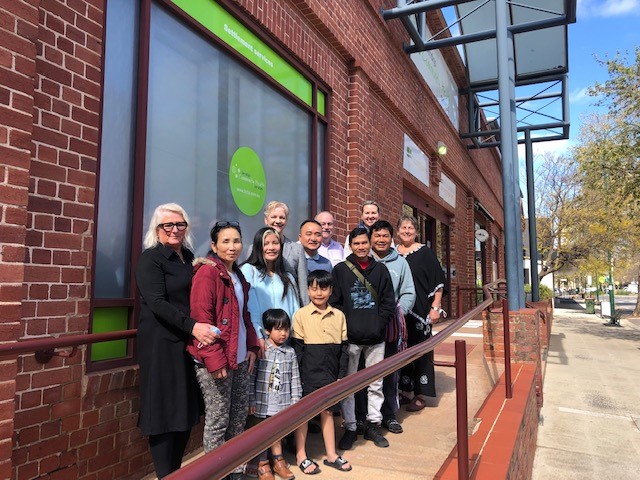A program for new Bendigo residents arriving from overseas is making our roads safer for all – while building important relationships.
Bendigo Community Health Services is delivering the road safety program thanks to a State Government Community Road Safety grant.
Through the program, newly arrived migrants and people from culturally and linguistically diverse backgrounds aged over 21 years are increasing their road safety knowledge, awareness and skills.
The program supports new residents to understand road rules, along with pedestrian, cyclist and driver behaviour – building their confidence on Victorian roads.
Participants who hold a licence can also access up to two paid professional driving lessons with a driving instructor.
Bendigo Community Health Services Senior Leader - Settlement Services, Martine Street, says the program is vital for humanitarian migrants making their home in Bendigo.
“So many come from places where there are literally no roads, or cars,” she said.
“Why would you know about seatbelts, traffic lights or emergency vehicles if you have never encountered them?
“Here, knowing how to cross the road safely could save your life.”
Ms Street says the program has “made the roads a safer place for all Bendigo road users”.
“Pedestrians have learnt to judge the speed of a vehicle to cross the roads, others have gained insight to making a trip in the car a safer experience by not creating distractions for the driver and using safety restraints,” she said.
“We conduct our RSNA sessions for participants in first language. People feel comfortable to ask questions and discuss the new information they hear.
“The most energy and engagement comes when Victoria Police visit and talk about being lawful road users. They talk about what you do when you hear the siren of an emergency vehicle, what to do if you are pulled over for a breath test, why you should not drink alcohol and take drugs and drive.”
Ms Street says one of the biggest surprises for new residents is when they learn they are not permitted to use a mobile phone while driving.
“We need programs like this to provide opportunities to new arrivals so they can understand the laws and rules that govern and make our roads safe,” she said. “Many participants comment that all new arrivals need to do this.”
Bendigo Community Health Services Refugee Project Worker, Nido, says many new residents grew up in refugee camps, where they were not exposed to roads, traffic lights or road rules – and many had never been behind the wheel of a car.
“English is also not easy for new arrivals, so this program gives them time to learn how to use roads safely, while also meeting people such as the police, reducing their fear of authority.
“That it is delivered in language by a trusted community member means participants are more comfortable.”
